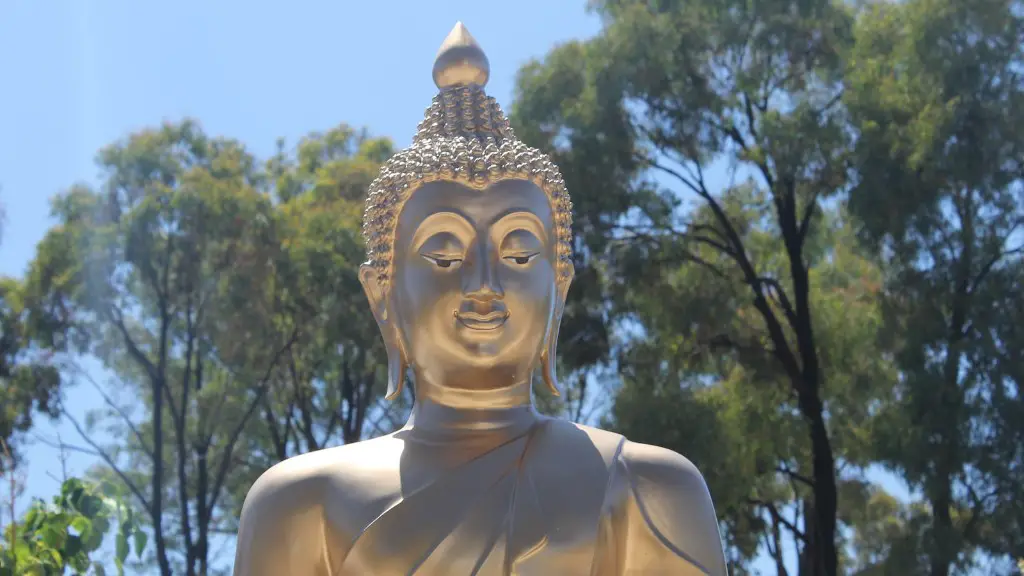What does Orthodox mean in Judaism? Orthodoxy is a branch of Judaism that adheres to fundamental or traditional beliefs as laid out in the Torah. Orthodox Jews believe that the Torah is both God’s written word and his revealed word through a sequence of events or teachings. This belief has led to the adoption of strict beliefs and observance of religious laws, referred to as halacha. Orthodox Jews are known for their commitment to traditional practices and observance of religious law.
At the core of Orthodox Judaism is the belief that the Torah was given by God and is unchanging, and therefore, should be adhered to irrevocably. The same holds true in Judaism for laws, morals, and values. Therefore, many Orthodox Jews choose to live a life that centers around maintaining faith and following customs and rituals laid out in the Torah. This includes observing Shabbat, or the Sabbath, which is the day of rest, attending synagogue on a regular basis, and participating in Jewish holidays. For Orthodox Jews, the observance of these practices is essential to their religious lifestyle.
The Orthodox Judaism movement is divided into two distinct groups; ultra-Orthodox and modern Orthodox. Ultra-Orthodox Judaism firmly rejects any non-Orthodox movements such as Reform or Conservative Judaism, and insist that the only way to practice Judaism is to strictly observe traditional Jewish laws. On the other hand, modern Orthodox Jews are more open-minded, and accept that the Torah can be interpreted and applied differently in various contexts. This group is also more liberal and willing to adopt some aspects of Western culture.
The term “Orthodox” encompasses a wide range of beliefs and practices within Judaism, so there is no one-size-fits-all definition of what it means to practice as an Orthodox Jew. However, the common thread that binds all of the various groups of Orthodox Judaism is strict adherence to traditional beliefs and practices. For many Orthodox Jews, being an Orthodox Jew means having a strong connection to their faith and a commitment to practice it carefully and faithfully.
“Halacha”
Halacha is the body of Jewish laws derived from the Torah and further elaborated and interpreted by rabbinical authorities over thousands of years. Halacha serves as the basis of Jewish life and practice, and it is of primary importance for Orthodox Jews who view it as an essential part of their faith. Halacha is based on the principles of the written law and the oral law as laid out in the Torah, but it also reflects the development of Jewish law throughout the ages.
Halacha plays an important role in the lives of Orthodox Jews as it dictates how they should conduct themselves in a wide range of areas. From Dietary Laws, to Marriage and Divorce, to Marriage and Divorce, the Halacha can provide guidance in all of these areas. There are many rabbinical authorities who are consulted when considering matters of law, and Halacha can vary between Orthodox Jews depending on which rabbis they adhere to.
Because Halacha is viewed as an essential law within Orthodox Judaism, it is taken very seriously. Orthodox Jews are expected to observe Halacha in regards to food and clothing as well as other areas of life, including education, relationships, and even leisure activities. Checking with a rabbi or a Halachic authority is essential for anyone hoping to practice as an Orthodox Jew.
Haredi Judaism
Haredi Judaism is a movement within Orthodox Judaism that emphasizes strict adherence to religious laws and traditions and a strong commitment to Jewish values. Haredim, as they are known, view the Torah as entirely binding and reject the idea of reforming or changing Jewish laws. Haredim are also known for their opposition to secular influences, such as Zionism and modern culture. They take their faith very seriously, and strive to not just observe laws of the Torah, but to live a life of integrity according to these laws.
Haredi Jews are also known for their distinct dress, which is seen as a symbol of their observance of traditional Orthodox Judaism. Men typically wear long black coats and wide brim fedoras, and women often wear long dresses and long head coverings. By adhering to these types of dress, the Haredi are seen as a visible example of the Orthodox Judaism way of life.
Haredim are also well-known for their commitment to religious study and learning. Many Haredi communities are centered around yeshivas, which are schools devoted to the study of Torah and Talmud. These schools are often among the largest in the Orthodox world, and serve as centers for spiritual growth and teaching of traditional beliefs and practices.
Customs & Rituals
Orthodox Jews have a wide range of customs and rituals that they observe in order to follow their faith and adhere to Halacha. These customs span across Jewish holidays and other important life events, and can range from singing blessings to taking part in ceremonies. One of the most recognizable customs in Orthodox Judaism is that of prayer services, which typically involve communal chanting and prayer to God. Other practices include sitting in a synagogue on Sabbath and wearing special clothing such as a kippah, or small cap.
Orthodox Jews also maintain the practice of Kashrut, which is the dietary law as dictated by the Torah. Kashrut is observed in many ways, but one example is the Jewish custom of separating meat from dairy. This is based on the belief that dairy products are considered to be sacred and not to be eaten with any type of meat, as blending the two foods is seen as an act that is not in keeping with Jewish law.
Many other customs are observed within Orthodox Judaism, including the rituals that take place during life cycles events such as marriage, divorce, and death. Each of these has specific rituals and customs that must be followed, and these practices serve to enhance the spiritual experience of the event.
Synagogue & Worship
Worship and prayer is an important part of Orthodox Judaism and takes place in a synagogue. Synagogues are typically open every day, but most Orthodox Jews attend on Fridays and Saturdays. During services, men and women usually sit separately, and men lead the prayers, singing and chanting in Hebrew. Worship typically contains a combination of prayer and sermons, with the latter being directed towards educating the congregation about the weekly Torah portion and other religious topics.
Synagogues also serve a role for social interaction within Orthodox Judaism. Many synagogues host various events such as book clubs and classes, and community members often gather to celebrate life cycle events and participate in holiday festivities. These events provide a platform for strengthening the community and connecting to one another, as well as enriching each other spiritually and socially.
Sermons can also be found in most Orthodox Jewish homes. Families often gather on a weekly basis to sing blessings from the Torah, such as the Shema Yisrael, and to discuss the weekly Torah portion. This type of gathering allows families to come closer together, build Jewish identity, and teach their children about Orthodox Judaism and the importance of living according to the Torah’s commandments.
Modesty
In Orthodox Judaism, modesty is a highly valued quality. This is rooted in the belief that humans should strive to be humble and avert attention away from themselves in order to reflect one’s true self to God. This is often expressed through dress. Men typically wear black or muted colors and women usually wear longer skirts and shirts with higher neck lines. By following these dress codes, individuals are showing a respect for the traditional values of modesty that are at the core of Orthodox Judaism.
The modesty of speech is also highly important. This includes not speaking about oneself or one’s personal successes. Instead, Orthodox Jews opt to strive for humility and focus on their own spiritual growth. This way of thinking reflects the idea that one should strive to be pious and humble, and that the act of serving God should be done without any type of recognition or honor.
Ultimately, modesty is an important concept in Orthodox Judaism because it reflects the idea that one should seek to draw closer to God in order to live a holy and pious life. By embracing modesty and viewing themselves as part of a greater whole, Orthodox Jews can cultivate an internal sense of humility and subservience that can help them to stay rooted in their traditional values.
Conclusion of Torah
The Torah or the “Five Books of Moses” is at the heart of the Jewish faith, and is a source of the rules and guidelines of the religion. It is said to be an eternal and unchanging book, revealed by God to Moses and preserved by Jews until modern times. Among the Jewish people, the Torah is seen as a divine and sacred book, and its teachings are of utmost importance to Orthodox Jews who believe in strict adherence to traditional laws and beliefs. The whole of the Torah forms the backbone of Orthodox Judaism, and its teachings are reflected in the customs, rituals, and observances of practicing Orthodox Jews around the world.


